How To Get Rid Of Hiccups – 14 Home Remedies That Work
Bid farewell to those spasms with natural and effective solutions from the pantry.

Image: ShutterStock

Digestive disorders can lead to hiccups. It usually occurs during eating and drinking and go on for a few minutes to a few hours. Thankfully, there are some home remedies for hiccups that you can try to stop those annoying hiccups.
Hiccups can occur due to various reasons. Eating too fast, overeating, or just a simple reflex action are some of the reasons behind them. But, with a few simple steps, you can control them easily. So, next time the hiccups hit, don’t be scared, be prepared. Check out the best home remedies for hiccups below!
In This Article
Hiccups – What And How
Hiccups are a temporary condition caused during eating or drinking. They usually occur when the diaphragm contracts involuntarily (1). The diaphragm is the muscle that holds the lungs in place. The contraction results in a sharp intake of breath, which is stopped by the instantaneous closing of the glottis (or vocal cord). This entire process causes the hiccup, and the sound created by the process is what gives the hiccup its signature sound (2).
Hiccups are a reaction to common digestive disorders or disturbances. When the digestive muscle experiences convulsionsi Rapid, involuntary muscle spasms or contractions that cause uncontrollable shaking with altered consciousness. , it pulls on the stomach causing it to draw in air. As air is a foreign entity in the stomach, the body responds to this condition by closing the glottis (cover of the air tract) causing the characteristic ‘hic’ sound.
 Trivia
TriviaKey Takeaways
- Drinking icy water or biting a lemon wedge sprinkled with sugar may help stop hiccups.
- Various other remedies, such as gulping honey, consuming chamomile tea, and eating grape jelly, may be very helpful to get rid of hiccups.
- Avoid spicy foods and aerated drinks as they may worsen the hiccups.
- General methods may include gulping water and pulling tongue to stop hiccups.
Causes Of Hiccups
Hiccups can be caused by many reasons. We list here some commonly known ones:
1. Eating Too Fast
If you tend to gobble up your food and don’t have the time to chew, you can easily swallow air with your food, which results in hiccups.
2. Overeating
Overeating can increase your chances of contracting hiccups.
Foods laced with fat, aerated drinks, sugar-laced beverages, and even excess alcohol can trigger hiccups.
3. Reflex Action
In some cases, the stomach is stretched. When you devour too much food and air you tend to hiccup. This hiccup sometimes occurs as a reflex action to prevent choking.
4. Medical Disorders
In some cases, medical conditions like renal failure, encephalitisi Inflammation of the active tissue of the brain due to a bacterial or viral infection or as an autoimmune response. , brain trauma, stroke, and brain tumor can lead to hiccups
(3).
5. Nerve Damage
Sometimes, damage to the phrenic or vagus nerve can result in an unusually long bout of hiccups.
6. Acid Reflux
Acid reflux is one of the primary causes of hiccups.
Many medications like Xanax, Valium and Ativan, have been known to cause hiccups. Other drugs that can lead to hiccups include nicotine (4), (5).
7. Toxic Fumes
Toxic fumes and poisonous gases can also result in hiccups.
8. GERD (Gastroesophageal Reflux)
This is usually most common in infants who are under one year old. Babies who suffer from excessive GERD can suffer from hiccups.
9. Stress
Sometimes, hiccups can also occur due to stress. Anxiety has been known to cause temporary hiccups, and in some cases, hiccups were found to last much longer than usual.
Whatever may be the cause of your hiccups, they can be of a few types. Understanding the types will help you find the right remedy or seek medical attention. Learn more below.
Types Of Hiccups
- Transient (temporary): Lasts a few seconds or minutes; goes away on its own.
- Persistent: Lasts more than 48 hours but less than a month; may be linked to health issues like acid reflux.
- Intractable: Lasts over a month; could signal a serious condition and requires medical attention.
- Recurrent: Keeps coming back; each episode lasts longer than a few minutes and may be triggered by stress or eating habits.
Persistent and intractable hiccups are chronic hiccups. Both these kinds of hiccups present various associated health risks and should be examined by a doctor immediately.
According to a study in StatPearls, it is estimated that 4000 admissions for hiccups occur annually in the United States. It is further estimated that the incidence of hiccups in people with advanced cancer and neurological conditions ranges between 4-9% and 8-10% for those with gastroesophageal reflux disease (GERD).
 Fun Fact
Fun FactLet’s understand the causes of chronic hiccup conditions below.
Causes Of Persistent Or Intractable Hiccups
1. Nervous System Disorders
Sometimes, nervous system problems like cancer, stroke, injuries, and other infections can lead to hiccups (6).
2. Metabolic Problems
For those suffering from low or high metabolic activity, hiccups can be a reasonably common occurrence. Other chemical problems like hyperventilationi A condition that causes deep or rapid breathing beyond normal levels, often due to an anxiety or panic attack. or reduced kidney functioning can also lead to hiccups.
3. Mental Health Problems
Hiccups can also occur in people who face persistent mental health issues like personality disorders, autismi A developmental disorder that impairs social behavior, i.e., the ability to learn, communicate and interact with others. , and in some cases even depression and anxiety.
14 Home Remedies To Get Rid Of Hiccups
- Honey For Hiccups
- Yogurt For Hiccups
- Ice For Hiccups
- Sugar For Hiccups
- Cardamom Powder For Hiccups
- Lemon For Hiccups
- Water For Hiccups
- Ginger For Hiccups
- Asafoetida For Hiccups
- Chamomile Tea For Hiccups
- Gripe Water For Hiccups
- Grape Jelly For Hiccups
- Peanut Butter For Hiccups
- Vinegar For Hiccups
Hiccups Remedies That Work
1. Honey For Hiccups
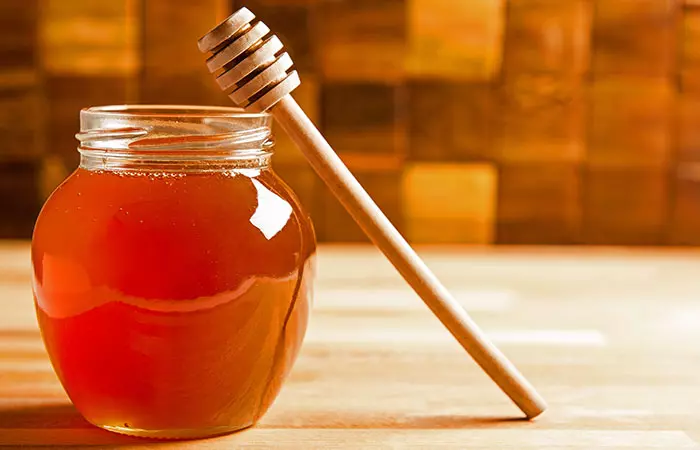
You Will Need
1 tablespoon honey
What You Have To Do
If you find yourself hiccupping continuously, gulp down a tablespoon full of honey.
How Often Should You Do This
Doing this once should stop the hiccups.
Why This Works
Gulping down honey eases the hiccup sensation. The swallowing action, coupled with the warmth of honey, will relieve you of the hiccups (7).
2. Yogurt For Hiccups
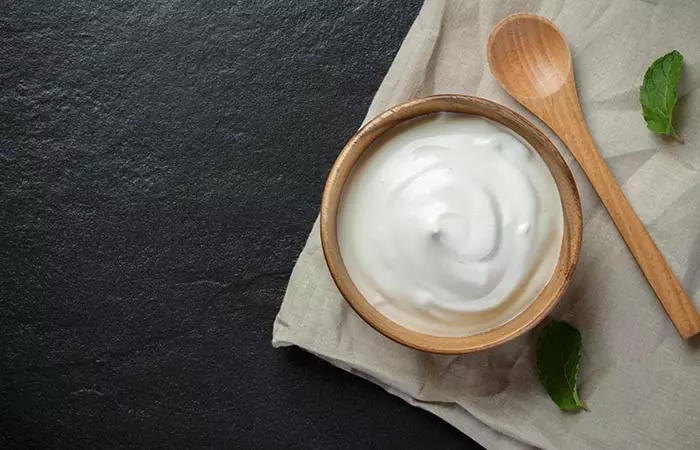
You Will Need
- 1 cup plain yogurt
- 1 teaspoon salt
What You Have To Do
- Mix the salt in the yogurt to get a homogenous mixture.
- Eat this yogurt slowly.
How Often Should You Do This
You should get relief within the first usage of this remedy.
Why This Works
Just a few spoons of this mixture – that’s all you need for instant relief from those spontaneous ‘hics’. Anecdotal evidence shows that yogurt may help calm down the diaphragm and stop the hiccups.
[ WATCH VIDEO: How Yogurt Helps Hiccups ]
3. Ice For Hiccups
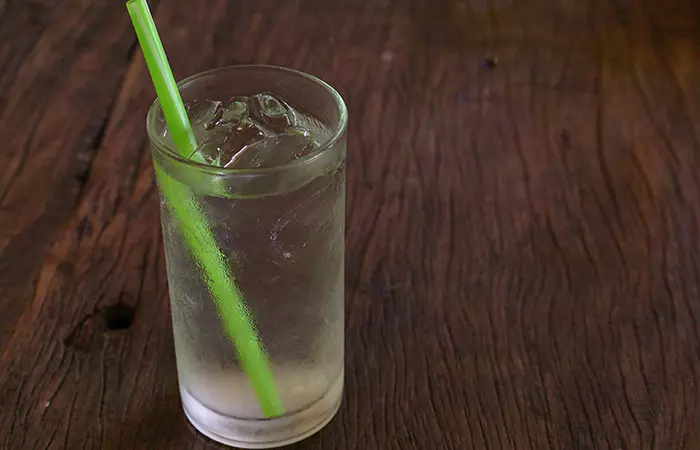
You Will Need
- Few ice cubes
- A glass of water
What You Have To Do
- Add a few cubes of ice to a glass of water and drink.
- An alternate solution is to wrap a few cubes of ice in a clean, thin cloth and apply it to the back of the neck.
How Often Should You Do This
A glass of this chilled water will calm down the hiccups.
Why This Works
Cold water
is believed to shock the digestive tract and cure hiccups immediately (8). You might find yourself gasping for a few seconds, but this is nothing to be alarmed about. Take deep breaths to regain your normal breathing cycle. The hiccups will be gone in a jiffy! Also, when sipping the water, swallow the water with your chin touching your chest. This can help stop the hiccup reflex.
4. Sugar For Hiccups
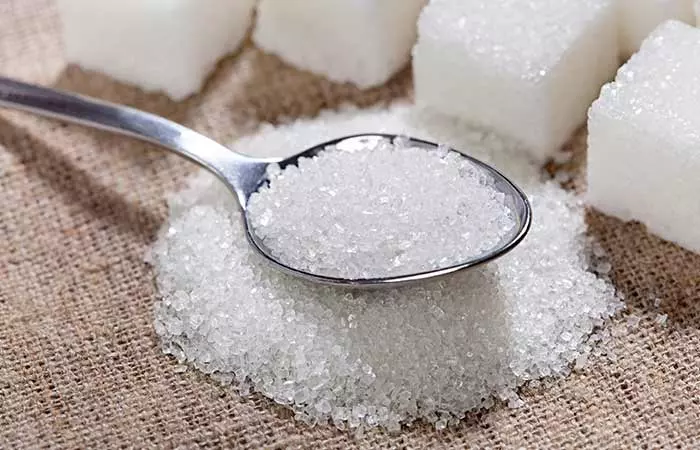
You Will Need
1 teaspoon sugar
What You Have To Do
Hold the sugar in your mouth for about thirty seconds while it dissolves, then chew, and swallow slowly.
How Often Should You Do This
Repeat if required.
Why This Works
Sugar is one of the oldest remedies for hiccups. This leads to excess sweetness in the mouth that is believed to be an excellent cure for hiccups (9).
5. Cardamom Powder For Hiccups
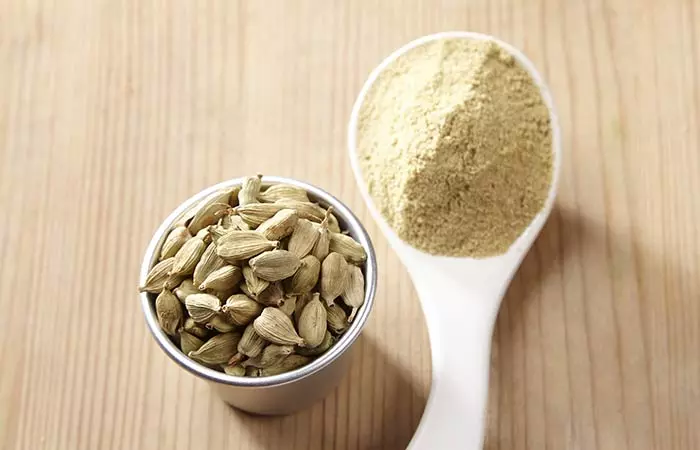
You Will Need
- 1 teaspoon cardamom powder
- 1 1/2 cups water
What You Have To Do
- Boil freshly ground cardamom powder in water over low heat.
- Allow the liquid to cool and strain.
- Drink the resulting filtrate.
How Often Should You Do This
Powdered cardamom is known to offer relief from hiccups almost instantly.
Why This Works
Cardamom powder may help relax the muscles of the diaphragm. Anecdotal evidence shows that it is one of the best ways to cure hiccups, this remedy works by flushing out excess alcohol from the system, relaxing the diaphragm muscles further.
6. Lemon For Hiccups
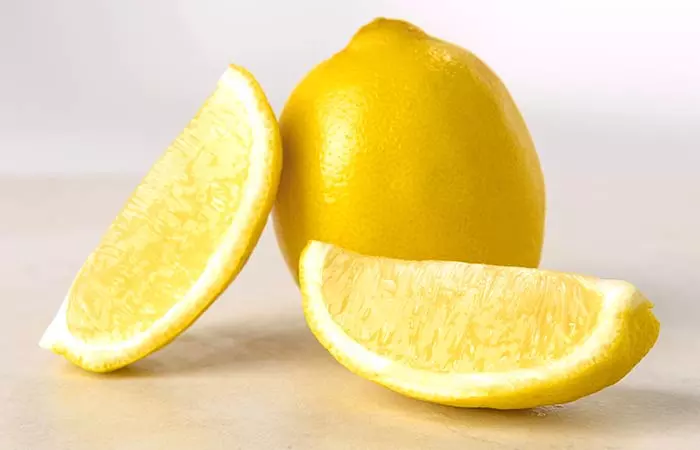
You Will Need
- 1 lemon wedge
- Sugar
What You Have To Do
Sprinkle sugar on the lemon wedge and bite into this.
How Often Should You Do This
The hiccups will stop in a couple of seconds.
Why This Works
The sour taste of this fruit helps to saturate the mouth and the digestive tract. It stimulates the nerves that are causing the spasm (2).
7. Water For Hiccups
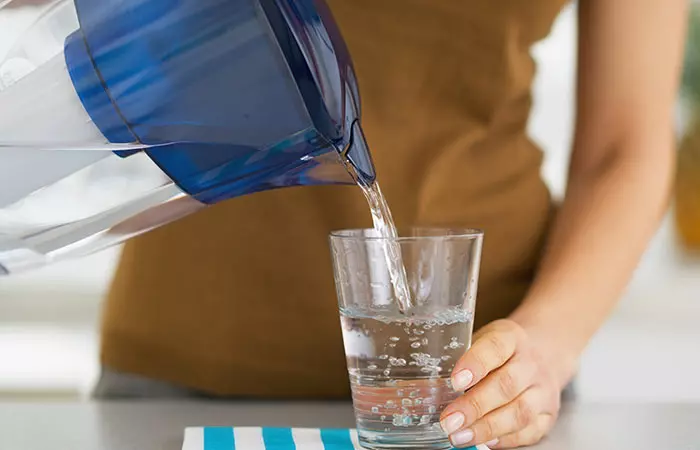
You Will Need
3-4 glasses cool water
What You Have To Do
Gulp down the cool water for a severe case of hiccups.
How Often Should You Do This
A single time usage of this remedy is enough.
Why This Works
A simple yet highly effective home remedy for hiccups is by drinking a glass of water, slowly. The swallowing mechanism relaxes the muscles of the diaphragm. It lengthens the gap between each hiccup and eventually relieves you of the hiccups. Holding breath after swallowing each sip for a brief period also helps.
8. Ginger For Hiccups
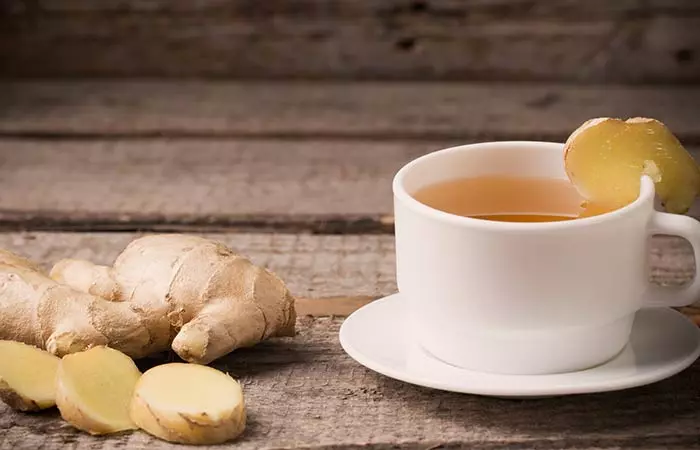
You Will Need
Ginger
What You Have To Do
- Take 2-3 small pieces of ginger and place them in your mouth.
- Suck on these pieces for a few minutes.
You can also brew some fresh ginger tea and sip it slowly.
How Often Should You Do This
Ginger will relieve
the hiccups in the first time.
Why This Works
Ginger is an excellent remedy to get rid of the annoying hiccups. Its anti-inflammatory properties will relax the diaphragm muscle. Ginger is also good for hiccups caused by indigestion (10).
9. Asafoetida For Hiccups
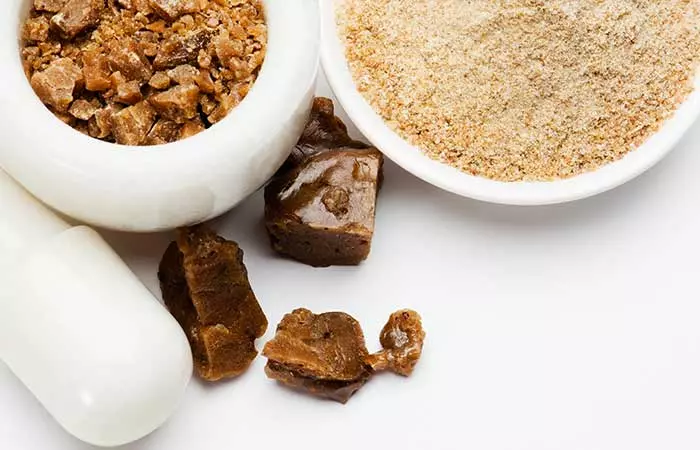
You Will Need
- 1 teaspoon asafoetida powder
- 1 tablespoon clarified butter
What You Have To Do
- Add the asafoetida to the butter and mix well.
- Swallow this mixture.
How Often Should You Do This
Use this remedy as and when required.
Why This Works
Though asafoetida, also known as ‘hing’ sounds like an unconventional remedy, it is a powerful agent that relaxes the muscles of the diaphragm (11). It is extremely potent and works really fast to provide rapid relief from hiccups.
10. Chamomile Tea For Hiccups
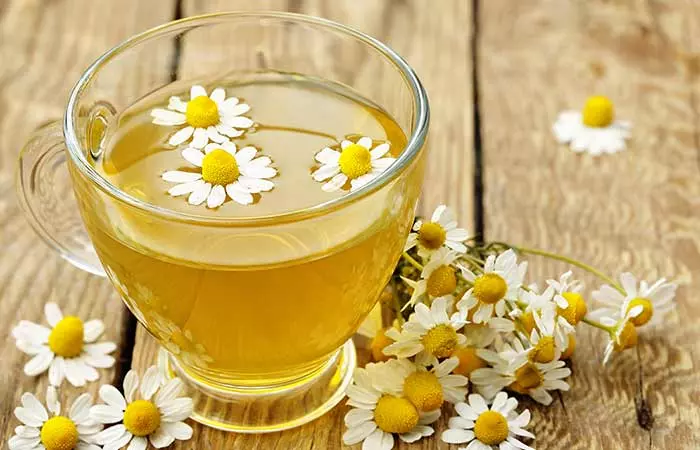
You Will Need
- 1 teaspoon dried chamomile herb or a chamomile tea bag
- A cup of hot water
- Few drops of lemon juice
What You Have To Do
- Brew fresh chamomile tea by steeping the herb in hot water for a few minutes.
- Add a few drops of lemon juice for taste and drink this herbal tea.
How Often Should You Do This
A cup of chamomile tea should make the hiccups go away.
Why This Works
Chamomile is a natural muscle relaxant that soothes the muscles in the diaphragm to ease contractions and controls hiccups (12).
11. Gripe Water For Hiccups
You Will Need
- 1 tablespoon gripe water
- 1 tablespoon water
- A dropper
What You Have To Do
- Dilute the gripe water with equal amount of water.
- Administer this to the baby drop by drop.
How Often You Should Do This
Do not give more than recommended dosage to the baby. Consult your doctor if the hiccups persist.
Why This Works
This remedy is excellent for infants and toddlers. It is used by mothers around the world to relieve hiccups and gas in their babies. It contains ingredients such as dill and ginger which are effective in stopping the hiccups (13).
Caution
Make sure that the gripe water does not contain alcohol and also that your baby is not allergic to any of the other constituents.
12. Grape Jelly For Hiccups
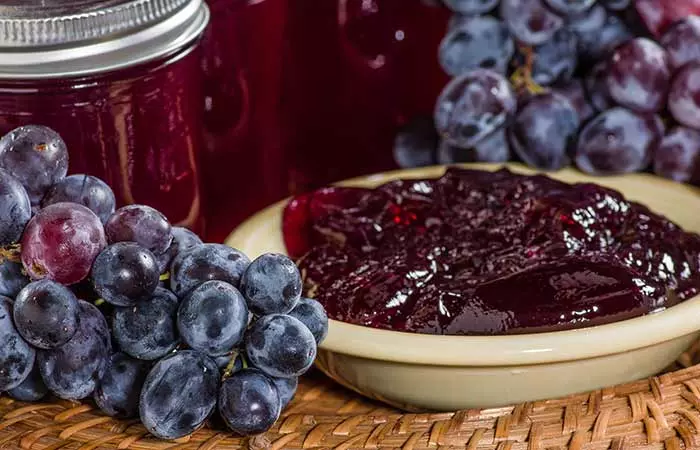
You Will Need
1 tablespoon grape jelly
What You Have To Do
Simply eat a tablespoon of this jelly.
How Often You Should Do This
Repeat if required.
Why This Works
While it is unclear how grape jelly works to cure hiccups, it is a remedy that is sworn by many people. It has been tested and tried by ‘hiccup sufferers’ everywhere. You can’t say no to grape jelly, right?
13. Peanut Butter For Hiccups
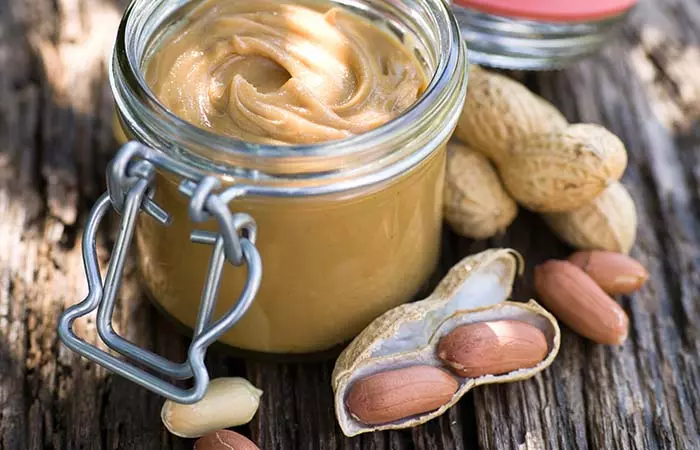
You Will Need
1 tablespoon of peanut butter
What You Have To Do
Simply eat the peanut butter off the spoon. You can also use almond butter or even chocolate spread.
How Often You Should Do This
A tablespoon should suffice.
Why This Works
While trying to eat the peanut butter, your breathing patterns are altered putting an end to those hiccups. This is definitely the yummiest of all the remedies.
Marilyn Nielson, a blogger, shared her experience of giving her kids a spoon of peanut butter whenever they had hiccups. She said, “I heard that suggested as a cure for the hiccups one time and we’ve done it ever since. I don’t know if it works; it seems to sometimes, but mostly they (the kids) just like it (i).”
14. Vinegar For Hiccups
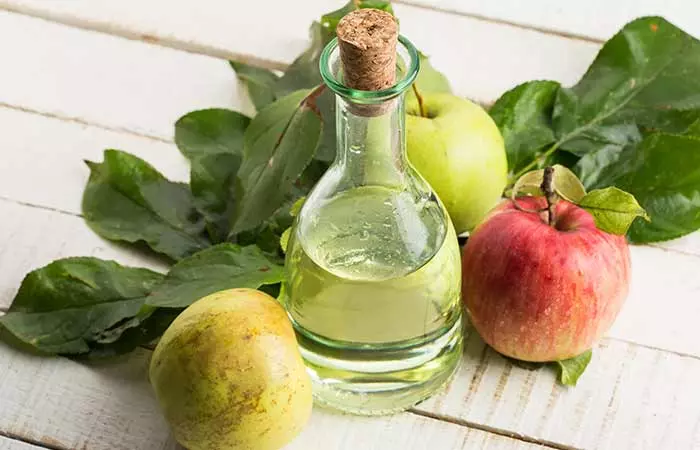
You Will Need
- 1 teaspoon apple cider vinegar
- 1 teaspoon maple syrup
- A glass of warm water
What You Have To Do
Mix the vinegar and maple syrup in the warm water and drink this.
How Often You Should Do This
You should get relief from hiccups with just a glass of this concoction.
Why This Works
This warm drink not only stops hiccups but also soothes the throat (14).
These remedies are excellent for the short-term and spontaneous hiccups. For persistent and intractable hiccoughs, the treatment can be different and usually depends on the source of the hiccup. People also opt for hypnosis or even acupuncture to treat persistent hiccups. Also, persistent hiccups lead to heartburn and indigestion. So, it’s helpful to know how to get rid of indigestion using effective remedies, such as ginger essential oil.
What Are The Symptoms Of Hiccups?
The peculiar ‘hic’ sound is the most typical symptom of hiccups. You may also experience some tightness in your chest or abdomen before the hiccup sound (2).
If you experience hiccups frequently, the tips mentioned in the next section can help prevent them.
Tips To Prevent Hiccups
Here are some effective ways to prevent hiccups:
- Breathe into a paper bag to relax your diaphragm.
- Inhale deeply and hold your breath.
- Sip cold water slowly to soothe diaphragm irritation.
- Swallow a teaspoon of sugar to stimulate the vagus nerve.
- Gargle with cold water to stimulate the vagus nerve.
- Apply pressure to the area above your upper lip.
- Avoid overeating.
- Limit carbonated beverages as they can trigger hiccups.
- Distract yourself with other activities.
If none of the remedies work, you may have to consult a medical professional. Keep reading to know more.
When To See A Doctor
You should see a doctor if your hiccups last more than 48 hours and cause discomfort or interfere with eating, sleeping, or daily activities. Also, seek medical help if hiccups are accompanied by other symptoms like chest pain, difficulty breathing, or stomach discomfort, as these could indicate an underlying issue that needs attention.
There are some foods that you should avoid to ease your hiccups. Explore them in the following section.
Foods To Be Avoided
Hiccups are not the result of a bad diet, eating habits, or lifestyle. While there is no specific diet plan for those who are frequently afflicted with hiccups, there are a few foods one can avoid while experiencing this condition. These foods aggravate the condition and can prolong hiccups.
- Avoid aerated drinks, including plain soda, as the gas causes belching, worsening the hiccups.
- Spicy foods also change the regular breathing pattern that can cause and increase hiccups.
- If you are hiccupping during a meal, it is best to stop eating until your hiccups have subsided completely, as this could worsen the situation by causing you to choke.
- Eating small portions averts gas formation in the stomach, preventing hiccups from occurring.
- Staying away from acidic foods can also prevent hiccups.
Some Other Facts About Hiccups
By now, you know how hiccoughs occur and how to treat them. Let’s look at some interesting facts about hiccoughs.
- Hiccups can be treated in many ways like gulping water, pulling out the tongue, sucking on a lemon, and whiffing some smelling salt.
- Doctors will usually refrain from prescribing you strong medications like haloperidol (Haldol), metoclopramide (Reglan) and chlorpromazine (Thorazine), even for persistent hiccups. Watch out for those doctors that do (15), (16).
Infographics: Unusual (But Effective) Methods To Stop Hiccups
Apart from home remedies, there are many unusual methods to stop hiccups. Some of these methods include distracting the mind, burping, stretching, massaging your neck to overstimulate the vagus nerve (a core component of the hiccup reflex arc). These remedies might not always work but are fun to try out anyway. Check out the below infographic to learn more.
Some thing wrong with infographic shortcode. please verify shortcode syntax
An involuntary contraction of the diaphragm due to sudden digestive disturbances can lead to hiccups. For example, eating too quickly, overeating, stress, GERD, a reflex action, or certain medical conditions may cause hiccups. Hiccups can be frustrating, but there are some effective home remedies for hiccups using simple ingredients like honey, yogurt, sugar, ice water, lemon, gripe water, and even peanut butter that can help you get rid of them almost immediately. However, it is important to note that hiccups that last for longer than 48 hours need to be checked by a doctor.
Frequently Asked Questions
Does holding your breath actually work to get rid of hiccups?
It might offer temporary relief from hiccups. Mrinal Pandit, a registered dietitian and certified nutritionist, says, “This method increases the level of carbon dioxide in the blood, which might stop the diaphragm spasms that trigger hiccups.”
Are hiccups serious?
Generally, it is not a serious issue. However, you may have to be careful if it does not resolve within a few minutes. Mrinal Pandit says, “Chronic hiccups lasting more than 48 hours might indicate underlying health issues and should be evaluated by a healthcare professional.”
Do hiccups affect the heart?
Occasional hiccups do not affect the heart. However, Mrinal Pandit says, “Prolonged or chronic hiccups should be medically assessed, as they can indirectly cause stress or discomfort, potentially affecting individuals with pre-existing heart conditions.”
Can hiccups make you sick?
Prolonged hiccups can be irritating and may affect your quality of life. According to Mrinal Pandit, “If hiccups persist, they can interfere with eating, sleeping, and overall well-being, indirectly impacting health. Persistent hiccups warrant medical evaluation to rule out any underlying conditions contributing to the symptom.”
How long can hiccups last?
Hiccups can last anywhere between a few minutes to several weeks or months. Hiccups that last over 2 days are termed chronic or persistent hiccups. The longest known duration of hiccups is 60 years.
How do you get rid of hiccups with pressure points?
You can put pressure on TE-17, located in the hollows behind the earlobes, to get rid of hiccups. Other pressure points that may help get rid of hiccups include CV-12, P-6 (in combination with CV-12 and SP-36), CV-13, and SP-4.
Are hiccups caused by a lack of oxygen?
No, an irregular contraction of the diaphragm causes hiccups.
Some thing wrong with illustration image shortcode. please verify shortcode syntaxTired of those annoying hiccups? Say goodbye to the hiccup blues with the proven techniques shared in this helpful video that shares simple tricks and surprising remedies for hiccup relief. Cheers to a hiccup-free life!
Personal Experience: Source
StyleCraze's articles are interwoven with authentic personal narratives that provide depth and resonance to our content. Below are the sources of the personal accounts referenced in this article.
i. A SPOON OF PEANUT BUTTERhttps://light-in-leaves.blogspot.com/2011/10/spoon-of-peanut-butter.html
References
Articles on StyleCraze are backed by verified information from peer-reviewed and academic research papers, reputed organizations, research institutions, and medical associations to ensure accuracy and relevance. Read our editorial policy to learn more.
- Hiccups: a common problem with some unusual causes and cures
https://www.ncbi.nlm.nih.gov/pmc/articles/PMC5072913/ - Hiccup: mystery, nature and treatment
https://www.ncbi.nlm.nih.gov/pmc/articles/PMC3325297/ - Hiccups in neurocritical care
https://www.e-jnc.org/upload/pdf/jnc-200018.pdf - Hiccup due to gastroesophageal reflux disease
https://www.researchgate.net/publication/45316165_Hiccup_due_to_gastroesophageal_reflux_disease - Drug induced Hiccups
https://www.researchgate.net/publication/313402956_Drug_induced_Hiccups - Persistent hiccups (singultus) as the presenting symptom of medullary cavernoma
https://www.ncbi.nlm.nih.gov/pmc/articles/PMC3244169/ - Honey and health: a review of recent clinical research
https://www.ncbi.nlm.nih.gov/pmc/articles/PMC5424551/ - ‘What puts the ‘Hic’ into Hiccups?’
https://www.ncbi.nlm.nih.gov/pmc/articles/PMC9237865/ - Tips and tricks for the persistent hiccup management in a Telemedicine encounter
https://www.ncbi.nlm.nih.gov/pmc/articles/PMC9550159/ - Effects of Ginger Intake on Chemotherapy-Induced Nausea and Vomiting: A Systematic Review of Randomized Clinical Trials
https://www.ncbi.nlm.nih.gov/pmc/articles/PMC9739555/ - HING (Ferula foetida Regel): A potent Unani Herb with its descriptive parameters of pharmacognosy and pharmacology: A Review
https://www.academia.edu/48658921/HING_Ferula_foetida_Regel_A_potent_Unani_Herb_with_its_descriptive_parameters_of_pharmacognosy_and_pharmacology_A_Review - Use of traditional medicine in the population attending a children’s hospital in the City of Buenos Aires
https://www.sap.org.ar/docs/publicaciones/archivosarg/2025/v120n3a05e.pdf - Spasmolytic potential of some medicinal herbs belonging to family umbelliferae: A review
https://ijrap.net/admin/php/uploads/1156_pdf.pdf - Use of vinegar to relieve persistent hiccups in an advanced cancer patient
https://pubmed.ncbi.nlm.nih.gov/25775370/ - Haloperidol
https://www.ncbi.nlm.nih.gov/books/NBK560892/ - Effectiveness and safety of metoclopramide in treatment of intractable hiccup: a protocol of systematic review and meta-analysis
https://www.ncbi.nlm.nih.gov/pmc/articles/PMC9540848/
Read full bio of Dr. Abby Kramer
- Dr. Mrinal Pandit is a registered dietician with the board of the Indian Dietetic Association (IDA) with over 13 years of experience. She is also a certified diabetic educator recognized by the Indian Diabetic Federation (IDF). After completing her post-graduation in dietetics from Savitribai Phule Pune University, Mrinal went on to work in maternity and childcare units, guiding new moms to plan their post-partum nutrition. Additionally, she has worked as a wellness consultant with reputed MNCs to create awareness among their employees on the importance of healthy eating.
 Dr. Mrinal Pandit is a registered dietician with the board of the Indian Dietetic Association (IDA) with over 13 years of experience. She is also a certified diabetic educator recognized by the Indian Diabetic Federation (IDF). After completing her post-graduation in dietetics from Savitribai Phule Pune University, Mrinal went on to work in maternity and childcare units, guiding new moms to plan their post-partum nutrition. Additionally, she has worked as a wellness consultant with reputed MNCs to create awareness among their employees on the importance of healthy eating.
Dr. Mrinal Pandit is a registered dietician with the board of the Indian Dietetic Association (IDA) with over 13 years of experience. She is also a certified diabetic educator recognized by the Indian Diabetic Federation (IDF). After completing her post-graduation in dietetics from Savitribai Phule Pune University, Mrinal went on to work in maternity and childcare units, guiding new moms to plan their post-partum nutrition. Additionally, she has worked as a wellness consultant with reputed MNCs to create awareness among their employees on the importance of healthy eating.
Read full bio of Kushneet Kukreja
Read full bio of Arshiya Syeda
Read full bio of Dipti Sharma







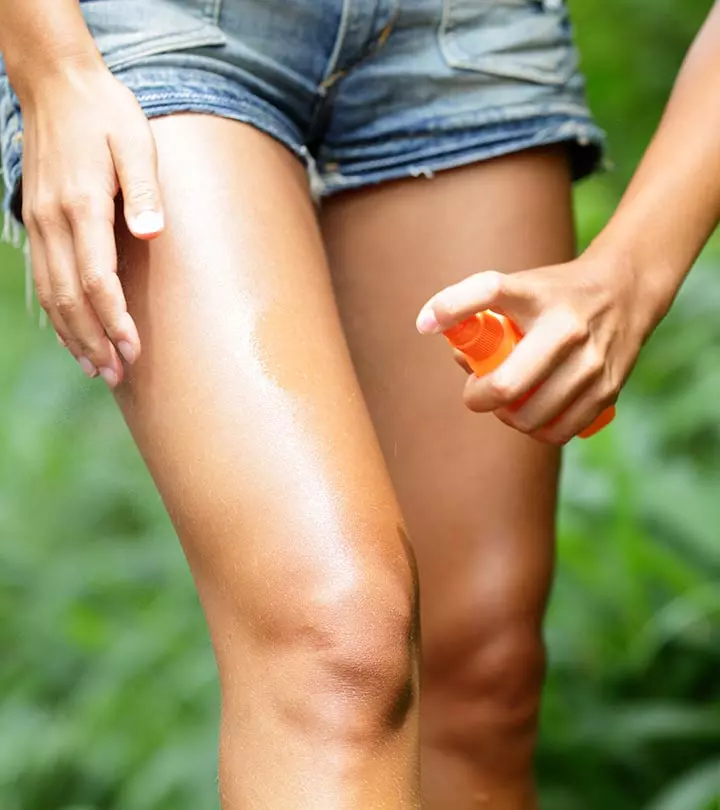


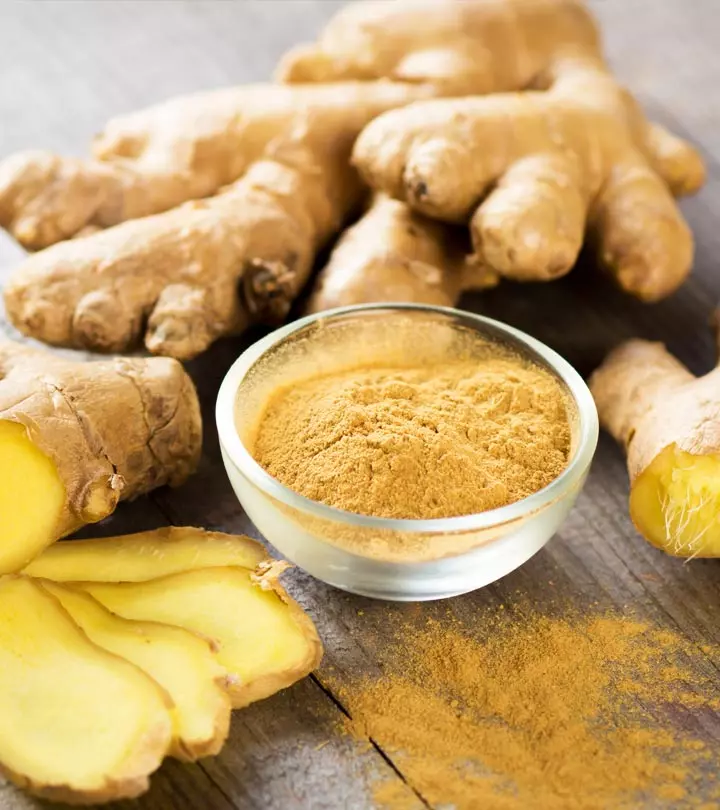
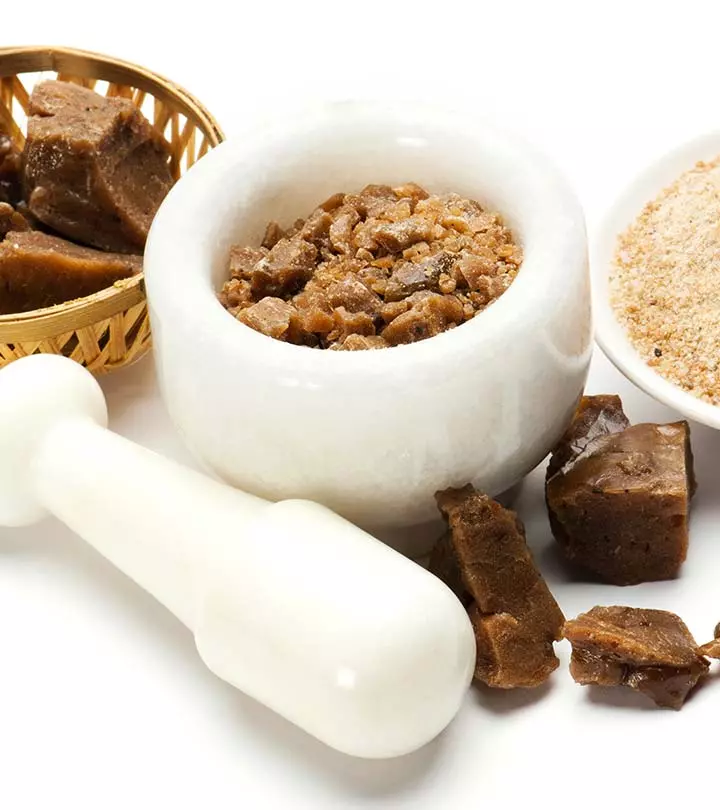

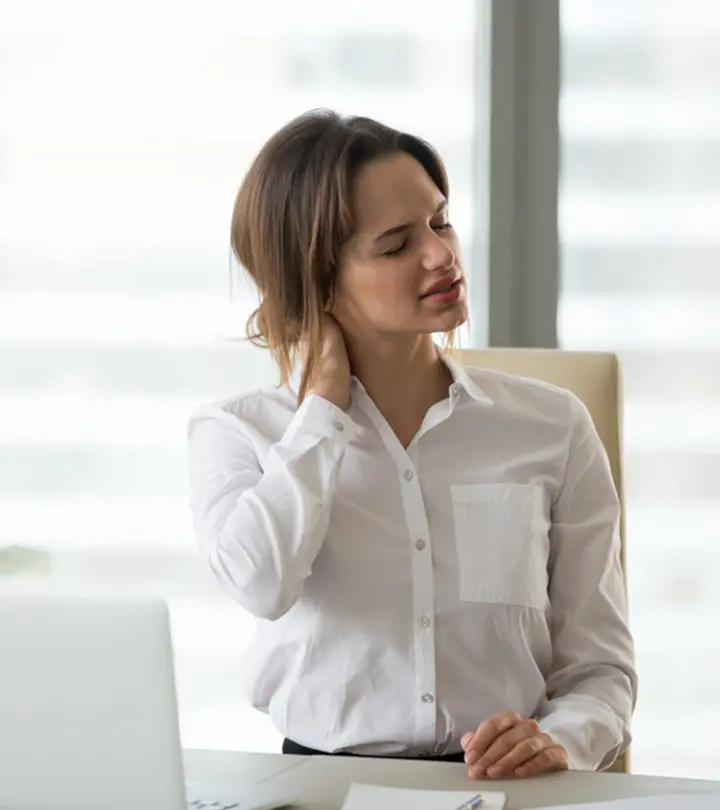
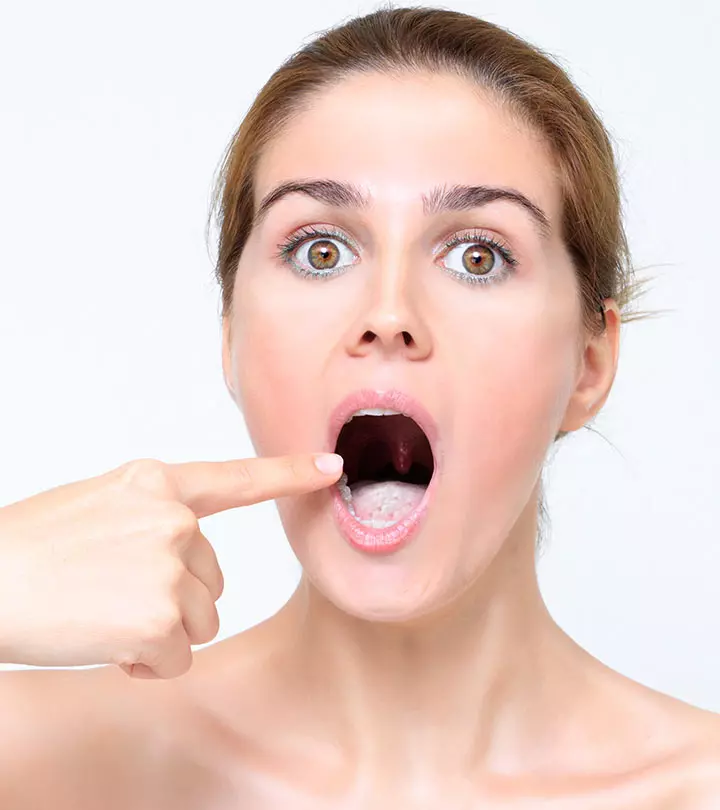
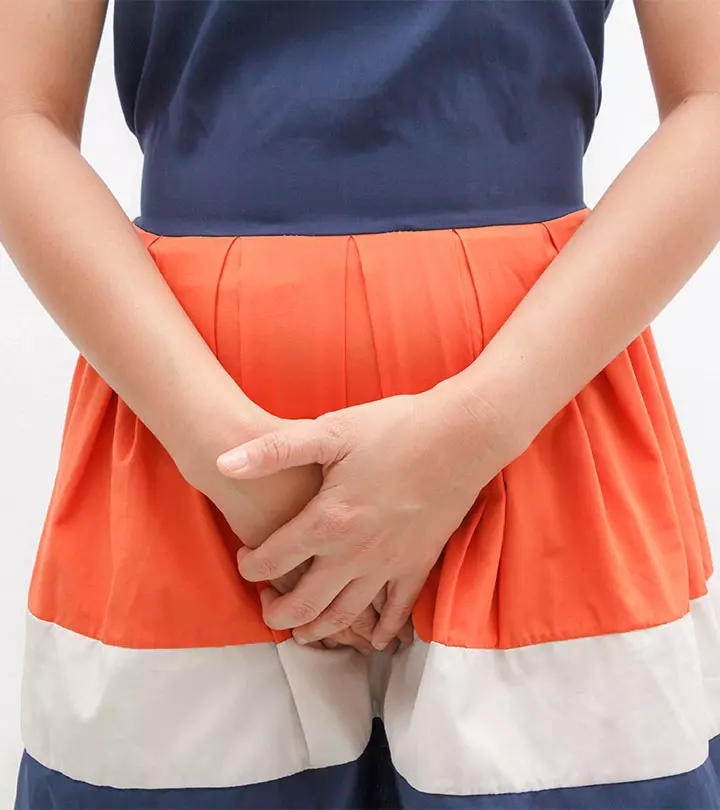



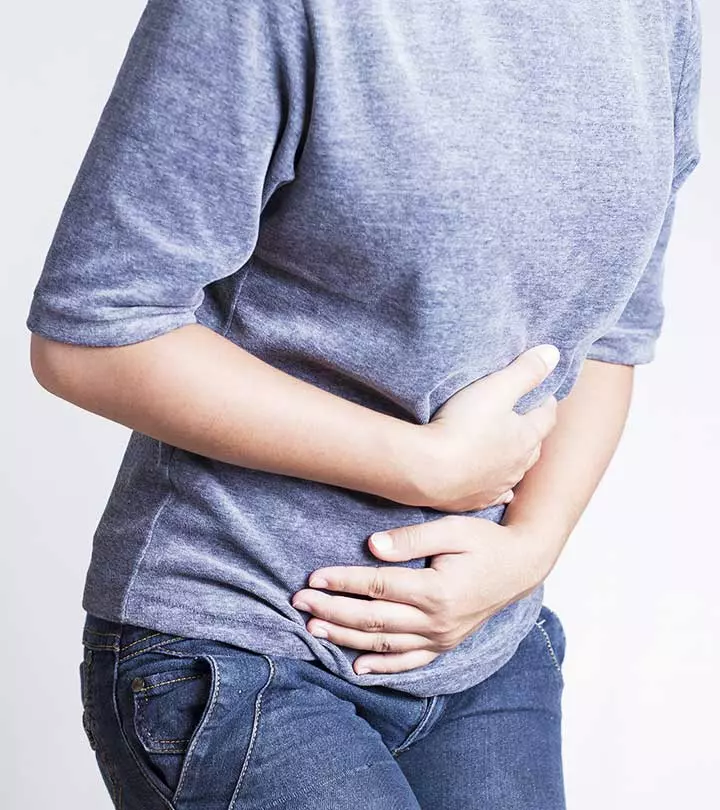

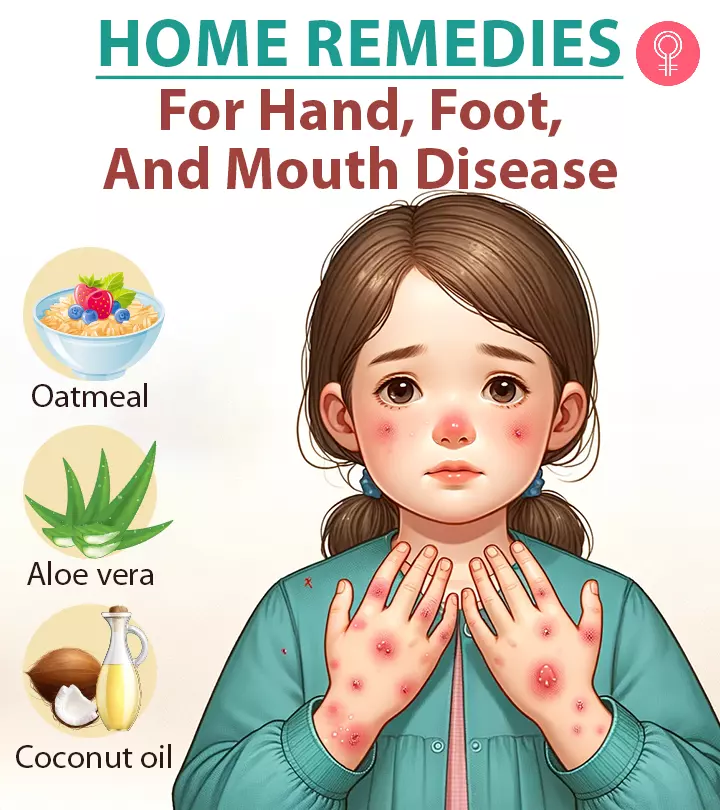

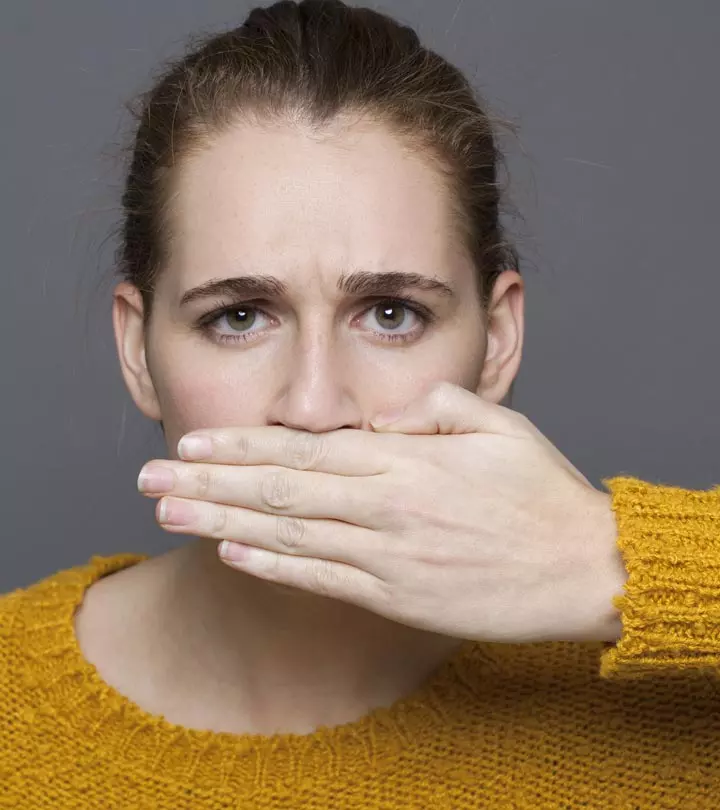


Community Experiences
Join the conversation and become a part of our empowering community! Share your stories, experiences, and insights to connect with other beauty, lifestyle, and health enthusiasts.